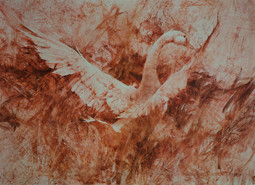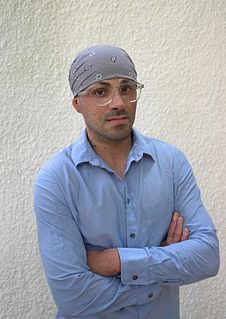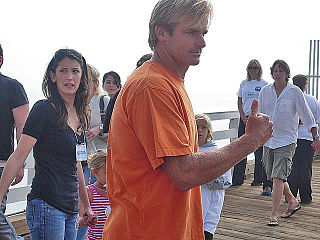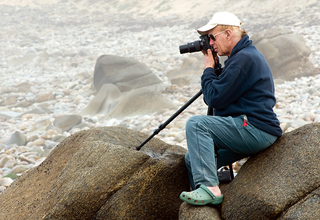A Quote by Richard Schmid
Scan your subject for things that are clearly impossible. After all, paint isn't magic! If you see that certain elements in the subject are beyond the limits of your pigments, try to form an idea beforehand of how you are going to handle those areas when you get to them.
Related Quotes
Before you begin a thing, remind yourself that difficulties and delays quite impossible to foresee are ahead. If you could see them clearly, naturally you could do a great deal to get rid of them but you can't. You can only see one thing clearly and that is your goal. Form a mental vision of that and cling to it through thick and thin.
Photographers tend not to photograph what they can’t see, which is the very reason one should try to attempt it. Otherwise we’re going to go on forever just photographing more faces and more rooms and more places. Photography has to transcend description. It has to go beyond description to bring insight into the subject, or reveal the subject, not as it looks, but how does it feel?
What I found interesting in dance is the idea that my work has always been dealing with the nervousness between the human subject as a subject and the human subject as a form. And if you look at my dance films, there are always these cuts between the dancer as a form, the dancer as a subject, and this kind of very harsh treatment of the dancer as someone who's actually drawing with their body.
I try to ?nd clues in the documented record - from the subject's own testimony, from the testimony of other people. When you're writing a biography, you're trying to understand your subject in the same way that you try to understand one of your friends, and that effort at understanding is always very imperfect.
Approaching subject matter to photograph is like meeting a person and beginning a conversation. How does one know ahead of time where that will lead, what the subject matter will be, how intimate it will become, how long the potential relationship will last? Certainly, a sense of curiosity and a willingness to be patient to allow the subject matter to reveal itself are important elements in this process.
People get into a heavy-duty sin and guilt trip, feeling that if things are going wrong, that means that they did something bad and they are being punished. That's not the idea at all. The idea of karma is that you continually get the teachings that you need to open your heart. To the degree that you didn't understand in the past how to stop protecting your soft spot, how to stop armoring your heart, you're given this gift of teachings in the form of your life, to give you everything you need to open further.
Doing an interview you're going to have certain things you want to get at, but you're better off if you play to people's strengths a bit. You're also assessing how it's going and adjusting as needed. Does your subject seem up for it, willing to do it, and is he or she enjoying the interview? Or do they need to be coaxed, or reassured, or whatever they might need from you? Like writing, interviewing is a process that you keep learning, and you're always trying to get better and better.







































